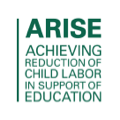FAQs
Find out more
What is the mission of ARISE?
ARISE aims to prevent and eliminate child labor in countries where JTI does business.
How does ARISE define child labor?
ARISE uses the definition established by the International Labour Organization, which defines child labor as work that deprives children of their childhood, their potential, and their dignity, and that is harmful to physical and mental development. ILO Conventions establish minimum ages for entry into work (ILO Convention No. 138 on Minimum Age) and address the worst forms of child labor (ILO Convention No. 182 on Worst Forms of Child Labour). These Conventions, approaching universal ratification among ILO Member States, provide detail and clarity on what constitutes child labor. More generally, child labor refers to work for which a child is too young, or that is likely to jeopardize children’s health, safety or morals, including work that interferes with children’s education or their ability to benefit from education. Specifically, any work that is likely to jeopardize children’s physical, mental or moral health, safety or morals should not be done by anyone under the age of 18. The basic minimum age for work should not be below the age for finishing compulsory schooling, which is generally 15. Regarding light work, children between the ages of 13 and 15 years old may do light work, as long as it does not threaten their health and safety, or hinder their education or vocational orientation and training, however in Brazil this is 16.
What are the causes of child labor?
Factors such as the family situation, poverty, and cultural influences contribute to the existence of child labor. Different geographies could have different root causes e.g., poverty for African countries vs. local customs & traditions for Brazil). Poverty is both a cause and a consequence of child labor in all its forms. Poor families sometimes view the immediate gains of work as more profitable than the long-term investment in education. Similarly, the high cost of quality education (such as books, fees, uniforms, etc.), encourages some low-income families to direct their children towards work rather than study. Contributory factors also include low levels of education, the effects of HIV/AIDS when parents die and leave orphans as well as other economic shocks to poor households. The prevalence of the informal economy, a lack of enforcement of laws against child labor, a lack of education and awareness of what child labor is, and a lack of social protection also perpetuate the problem.
How does ARISE contribute to the UN Sustainable Development Goals?
ARISE focuses on three core areas that directly contribute to the achievement of SDG 1 for Quality Education, SDG 8 for Decent Work and Economic Growth, and SDG 16 for Partnerships for the Goals. However our initiatives are interconnected and as such also contribute to other SDGs such as:
- SDG 1 No Poverty via our Village Savings and Loans Association training which increases access to finance and household income
- SDG 2 Zero Hunger via our Model Farm Schools and School Feeding Programs which address food security
- SDG 5 Gender Equality via opening access to education for girls and our Income Generating Activities for mothers which reduces income earning inequality
- SDG 6 Clean Water & Sanitation via our boreholes and toilet facilities at schools
- SDG7 Affordable Clean Energy via our solar power systems in school gardens
- SDG 13 Climate Action via our cookstove projects that reduce the need for wood fuel stoves and deforestation
- SDG 15 Life on Land via our Model Farms School and deforestation competitions which teach and agroforestry and environmental conversation.
How can ARISE operate at local level as a partnership with very different organizations?
All partners of the ARISE program have similar visions of what can be done to eliminate child labor in the tobacco industry and how we should go about doing it. All partners are committed to addressing the root causes of child labor, such as poverty and engrained cultural traditions, and to changing the practices of employers engaging child labor. Our community-based, integrated model of awareness raising, policy, education, and economic empowerment offers a means to do this by helping households to become more self-reliant. While this will not happen overnight, the ARISE partnership establishes clear benchmarks and deliverables on an annual basis, keeping everyone accountable. We all understand that this approach will be a gradual process over many years.
Where does ARISE operate?
ARISE currently operates in Brazil, Malawi, Tanzania, Zambia, Ethiopia and Bangladesh.
How can ARISE help when family incomes are reduced if children stop working?
One of the three core pillars of the ARISE program is economic empowerment. We invest in economic empowerment of communities via grant distribution and income-generating activities. The focus is on empowering women in rural areas because they are more economically vulnerable. We expect that the additional income earned will enable families to pay for workers to help on tobacco farms rather than using child labor.
How is ARISE funded?
ARISE is funded by JTI.
What can governments do?
ARISE believes that governments and regulatory bodies must be at the heart of sustainable child labor elimination efforts because they are key to creating environments that are conducive for the elimination of child labor, and it is their duty to do so. A core pillar of our child labour elimination strategy is to collaborate with State actors. This is based on the experience that we cannot achieve this on our own, that child labour can only be eliminated through a systems approach and governments are critical. We are currently working with several governments to help improve the regulatory frameworks that support the reduction of child labor.
Is the ARISE program only for tobacco suppliers of JTI?
The program is delivered in areas where JTI sources tobacco leaf. However some of the farms in the areas are not JTI suppliers. ARISE does not make a distinction because ARISE has a community-based or area-based approach. To avoid stamping child labor out of one sector and pushing it into another, you need an area-based or landscape approach. Interventions target specific locations, bringing different stakeholders together, with the aim to join forces to address all forms of child labour. For this to happen, collaboration across sectors is obviously key. It requires coordination, sharing of information and alignment. Through our partner the ECLT Foundation we are actively engaging with several agricultural sub-sectors.
Won’t children be worse off if they don’t work?
Some claim that if children are removed from work they will be forced into worse forms of child labor. However, ARISE provides alternatives to children to ensure their rights are respected, that they have access to education and other services, and that they are sustainable once withdrawn from child labor.
If children don’t work, won’t families suffer?
We believe that there is a period of transition when children are removed from work and that’s why we actively promote economic empowerment and vocational training for the whole community so that alternative forms of income can be generated.



